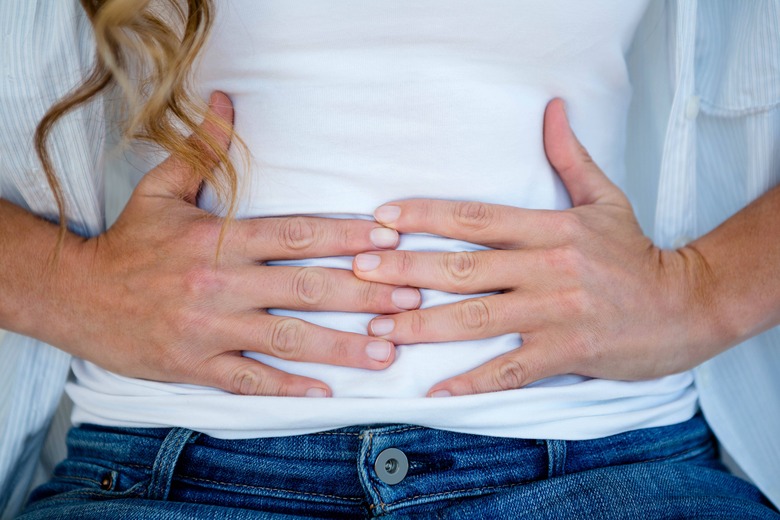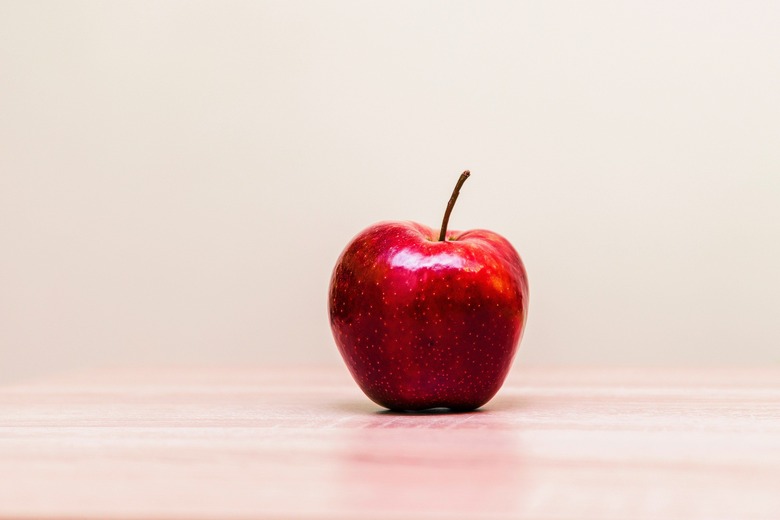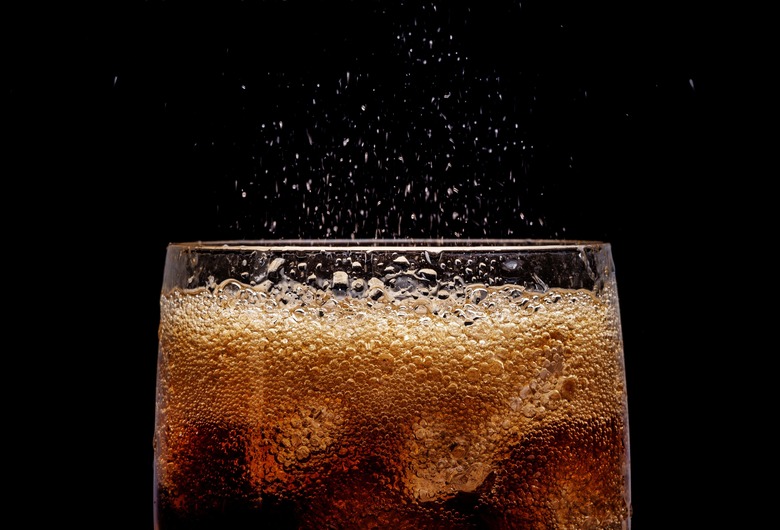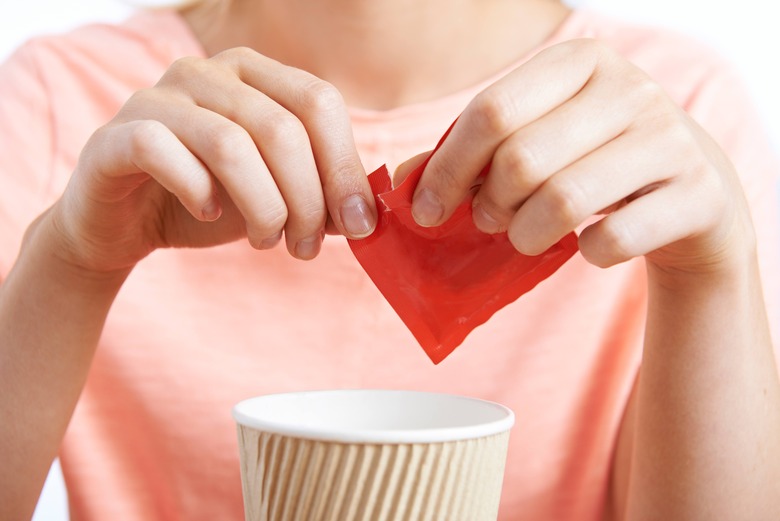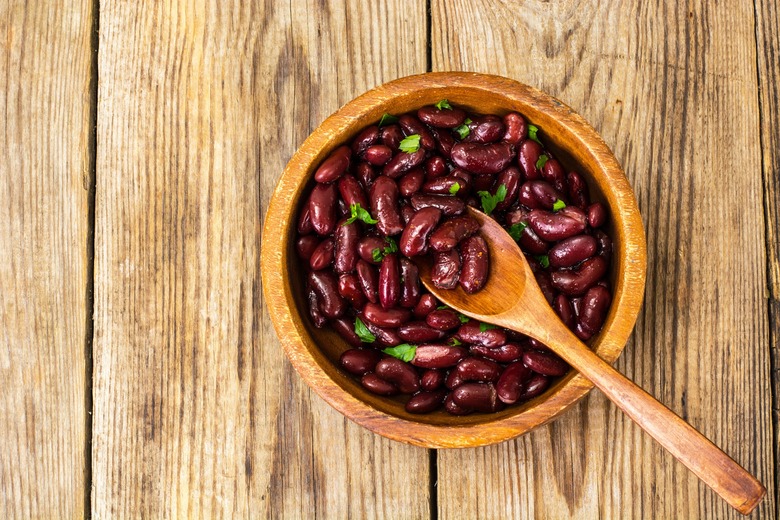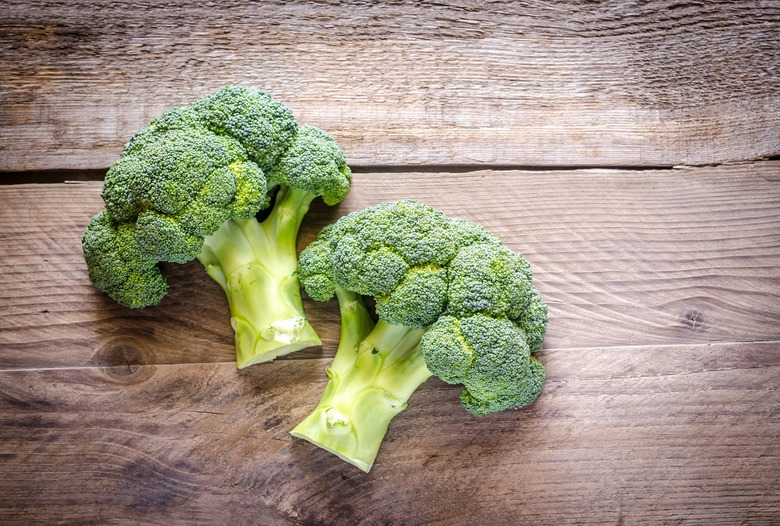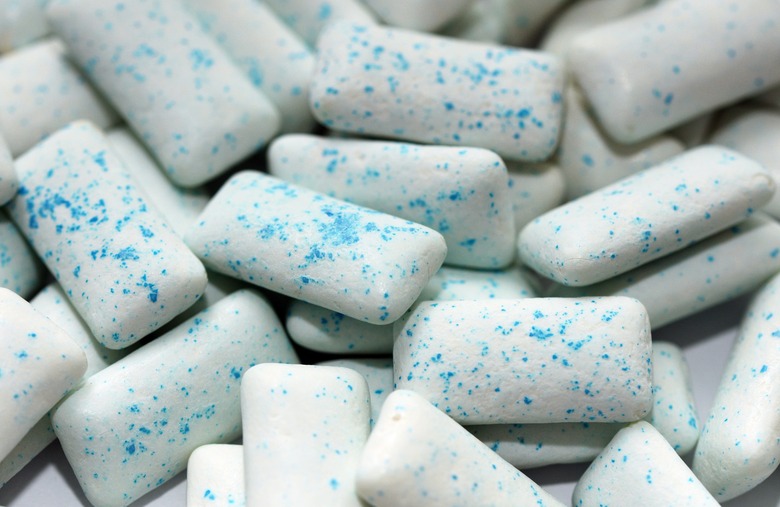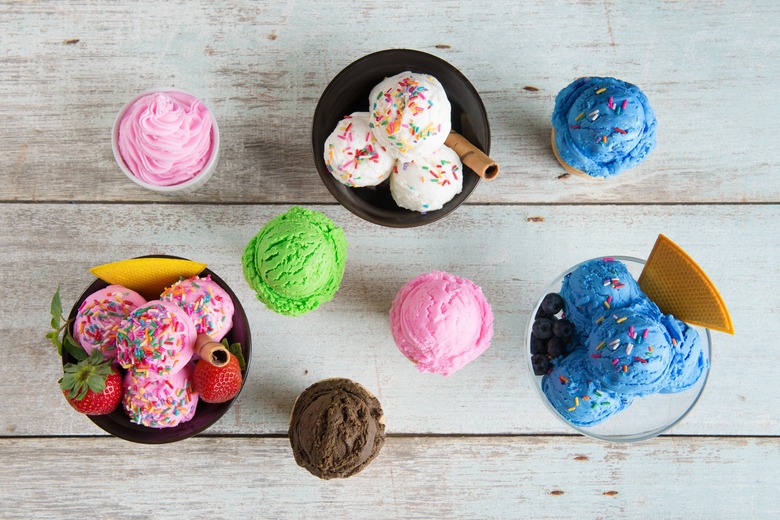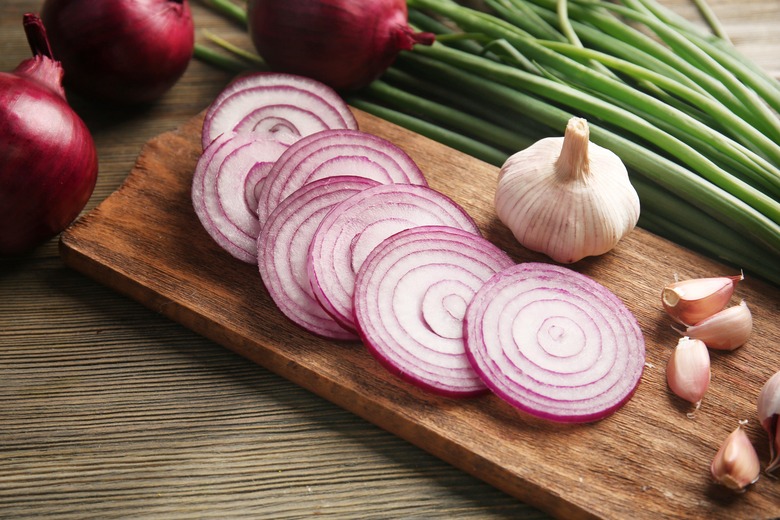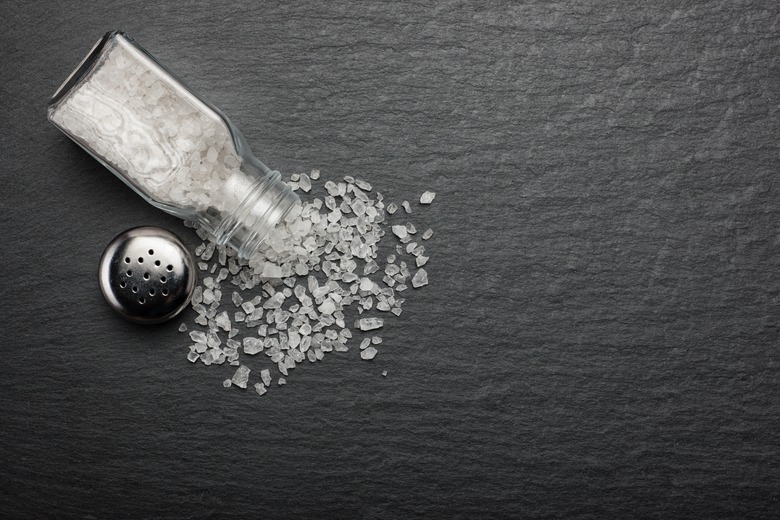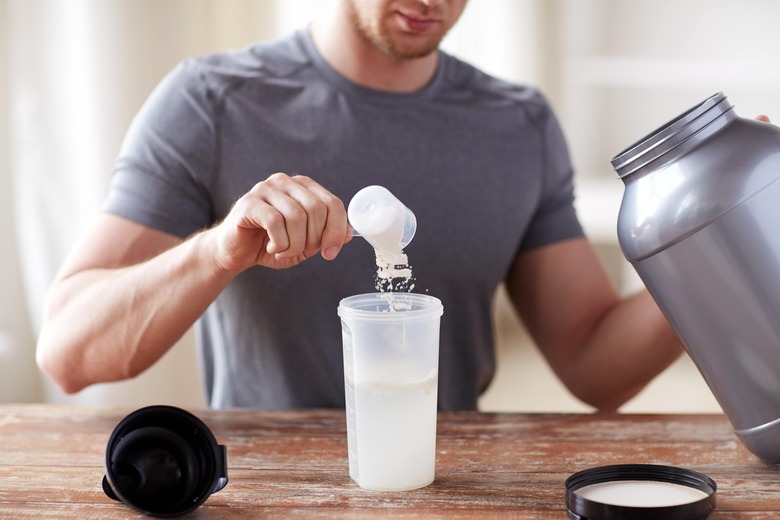Avoid The Bloat: Don't Eat These 10 Foods Right Before You Put On Your Swimsuit Slideshow
You wake up feeling confident, excited, and so ready for the beach. The weather is perfect, the sun is shining, and your new pair of shades is waiting for you in your beach bag. All you have to do is eat breakfast, put on your flip flops, and you're ready to go.
You eat an omelette with onions and broccoli with a glass of milk on the side — what you devised as a fabulous healthy breakfast choice to energize and fuel you for the stomach-bared day ahead.
But then the worst happens: bloating.
Immediately, you feel discomfort in your swimsuit, feeling as though your stomach expanded to twice its normal size in seconds. We all know this feeling far too well.
What did you do wrong? Without even knowing it, you ingested three of the most common foods known to cause bloating. This experience could have been prevented.
Before you eat something that will set you up for a day of bloat and embarrassing gas, look over this list to make sure you aren't putting yourself — and your stomach — through unnecessary discomfort.
Apples
But you thought apples were healthy! They are. This is important to understand: Just because a food makes you bloat does not mean it is unhealthy.
Apples contain fiber, vitamin C, and many other crucial nutrients for your health. However, they also contain fructose and sorbitol — two sugar compounds that many find difficult to digest. These, combined with the large amount of fiber in the fruit, make apples a common cause of bloating and discomfort.
Instead: Save the apples for when you get back from the beach or snack on grapes instead. Frozen grapes make a refreshing warm-weather snack!
Anything Carbonated
when you drink a carbonated beverage you are ingesting large amounts of gas. This gas builds up in your digestive tract, resulting in stomach expansion and discomfort.
Instead: Sip on fruit-infused water, tea, or a non-carbonated cocktail to not only decrease bloating, but also increase hydration.
Artificial Sweeteners
They may be zero-calorie, but the debate has been raging for some time about whether or not they are actually healthy. Your stomach can't absorb or digest many of these sweeteners, so they pass through to your large intestine unchanged. There, your gut bacteria find them and go haywire, feeding on the compounds your stomach could not — resulting in some intensely gaseous by-products. Sorbitol, xylitol, and mannitol are some names to look out for on ingredient labels.
Instead: Sweeten naturally with honey, maple syrup, dates, or small amounts of raw sugar.
Beans
Packed with nutritious compounds like protein, carbs, and fiber, beans are an excellent choice to add to any healthy meal. However, they contain sugars called FODMAPs (fermentable oligo-, di-, mono-saccharides and polyols). These compounds are indigestible, but they help to increase the amount of beneficial bacteria living in your stomach. The feeding process of these bacteria, however, results in the production of gas. Which means that beans making you fart is not a myth. If you're headed to the pool, maybe save the legumes for later.
Instead: Get your proteins and carbs from other easily digested sources such as quinoa, whole wheat bread, or almonds.
Broccoli and Raw Cruciferous Vegetables
Broccoli, cauliflower, Brussels sprouts, and cabbage are all to blame for your midline puffing out after a meal. Not only are these vegetables high in fiber and difficult for your stomach to digest raw, they also are high in FODMAPs — the same compounds responsible for beans making you gassy.
Instead: Cook your vegetables in olive oil to make them softer on your stomach and add healthy fats to your meal.
Chewing Gum
Not only does gum often contain artificial sweeteners linked to bloating, it also causes you to swallow large amounts of air while chewing. This air gets trapped in your stomach, causing you to bloat.
Instead: Bring some refreshing mints with you, or try one of these foods to fight your bad breath.
Dairy
Studies show that 75 percent of the population is intolerant to lactose to some degree — while some experience more severe effects than others, the intolerance can cause your stomach to bloat.
Instead: Replace foods that contain lactose (such as yogurt, milk, and ice cream) with dairy-free alternatives. These products are typically made with soy, almond, and coconut milk and provide a healthy, plant-based alternative.
Onions
Onions show up in more recipes than any other vegetable ingredient because of their flavor, versatility, and easy cooking methods. However, these bloating bulbs contain a large concentration of fructans, a soluble fiber that has been associated with bloating. Additionally, many people are actually digestively intolerant to certain compounds in onions, though they may not be aware of it. The resulting digestive difficulty increases bloating, as well.
Instead: Flavor your foods with fresh herbs and spices. But watch out for salt, another bloating culprit.
Salt
Not all bloating is because of gas or indigestion. Salt causes the body to retain water, which can result in the appearance of bloating. Too much salt can also make you dehydrated — your best call is to avoid it, especially if you're going to the beach!
Instead: Use black pepper, condiments, and spices to add flavor to your otherwise salty dishes.
Too Much Protein
While you aren't likely to experience these effects from meat, eggs, or other natural protein sources, whey protein has been known to cause indigestion. This is due to its extremely high protein content —your digestive system can't handle all the protein at one time. This overload results in gas, bloating, and indigestion.
Instead: Reduce your use of whey when you're about to put on a swimsuit and get your protein from other sources. Some ideas include yogurt, quinoa, eggs, and meat. For quinoa recipes for every meal of the day, click here.
